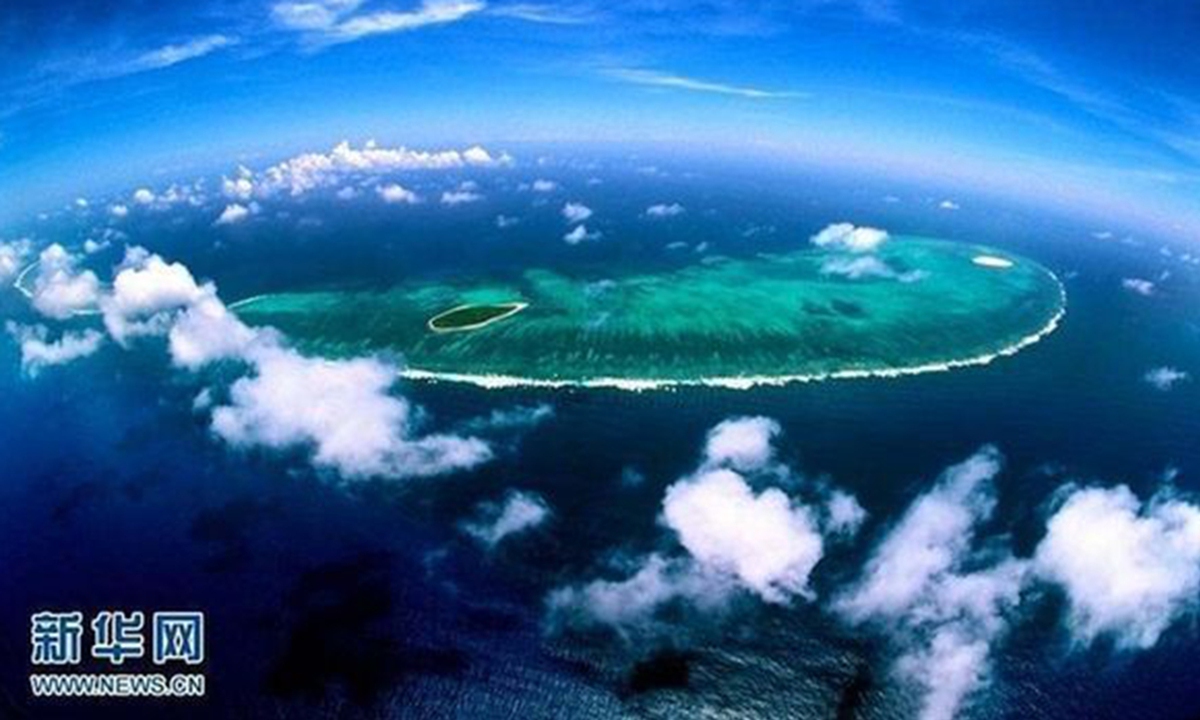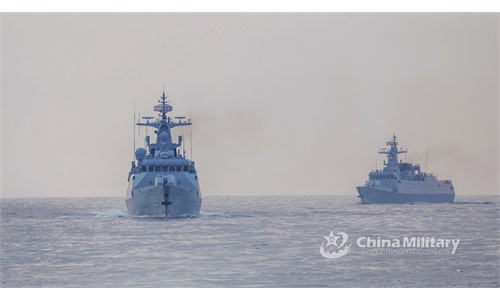China ends fishing moratorium in South China Sea, foreign media speculation rejected

An aerial photo of the South China Sea. File photo: Xinhua
The summer fishing moratorium has ended in the South China Sea, with thousands of fishing boats from South China's Guangdong, Fujian and Hainan setting off on Monday.
While some overseas media reports have been hyping the lifting of the fishing ban, smearing normal Chinese fishermen and demonizing China's role in the South China's Sea as a threat to the region's resources and environment, Chinese experts reiterated that the country has done more than any other to protect the sea's environment and resources. The country and its fishermen are also fully compliant with both domestic and international laws and regulations.
This year's fishing moratorium started on May 1 and was considered the toughest ever, with a number of new technologies such as satellite positioning, video surveillance and big data management used for maritime law enforcement, the Xinhua News Agency reported Monday.
During the three-and-a-half-month moratorium, the marine law enforcement corps in South China's Guangdong Province sent vessels on 5,605 patrol trips, during which 1,768 violation cases were handled, 1,691 illegal fishing vessels were seized and 630,000 square meters of illegal fishing nets were removed, Xinhua said.
The fishing ban in the South China Sea began in 1999, and was aimed at protecting the ecosystem and biodiversity from excessive fishing. Safety inspections on fishing gear and vessels are carried out during the ban, while training for relevant regulations and skills are offered to fishermen.
However, some countries that have disputes with China on the South China Sea such as the Philippines and Vietnam have protested against China's fishing ban and encouraged their fishermen to continue fishing in disputed areas.
Some foreign media reports, citing observers, have also warned that tensions and the risk of confrontation in disputed waters in the South China Sea might rise as some countries move to protect domestic seafood supplies during the COVID-19 pandemic.
Chen Xiangmiao, an assistant research fellow at National Institute for South China Sea Studies, told the Global Times on Monday that he was not worried about conflict between fishermen from China and any other country in the South China Sea as fishermen from various countries have reached a tacit agreement over the years.
But Chen said it is highly possible that some foreign authorities in the South China Sea could try to infringe on China's fishery rights, as well as smearing normal law enforcement by Chinese coastguards against foreign boats found illegally fishing in China's territory.
But China's activities are all conducted according to related laws and regulations despite speculation and smearing by foreign authorities and media reports, Chen said.
In fact, China has done the most, with the seasonal fishing ban as a good example, to protect the environment and sea resources, Chen said.
China has also completed a law enforcement mechanism for coastguards to regulate and protect domestic fishermen, as well as cracking down on illegal activities by foreign fishermen, Chen noted.

